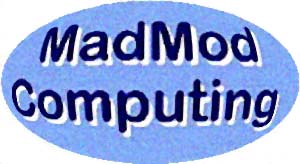
|
What Now? (What to do with the old or failed computer?) |

|
What Now? (What to do with the old or failed computer?) |
| Readying the Computer for Another Person's Use |
If your plan is donate your working Windows computer to a friend or non-profit for use, there is a problem. You are the registered user and the licenses are not transferrable to another party. My best suggestion is for me to overwrite the drive completely (removing Windows and all personal data) and to install the latest version of the general public license, operating system called Ubuntu. (a Linux distribution) Easy-to-use Ubuntu has a full suite of programs for e-mail, browsing the web, working with documents and pictures, and it can share with Microsoft Office files--perhaps the perfect solution for an old computer. (The learning curve since Ubuntu 6.10 is easy for a Windows user.)
|
| The Old Hard Drive--Disposal Issues |
The main concern about the old hard drive, assuming that the Windows enviroment is intact, is that the private/personal data that you don't wish to share. Assuming that the drive is readable in another computer, my best recommendation is to remove the drive from the old computer and install it as a second drive in the new computer. If it is readable, at least you can move the files from the old drive to the new drive, though having the related software is needed to view the files.
If the old drive is unreadable, I'd still suggest removing the drive from the old computer and storing it, since it doesn't take up much space--about the size of a small book. If you need help removing the drive, contact MadMod Computing. Now for the bad news: even an unreadable drive or a readable drive that has been reformatted or its data deleted, can be read by computer forensics experts. Data recovery, though very expensive, is usually possible even with a badly damaged drive. That's why I recommend that you keep the old drive even if the rest of the computer components are to be recycled. However, a drive that has not had personal data stored on it at any time can safely be recycled as-is. Assume that a determined individual may try to read what's on your old hard drive. (identity theft issues) |
| General Disposal Issues |
Throwing the computer out with the trash is a major NO-NO! First, the monitor, keyboard and mouse may be okay for the replacement/new computer as a backup. Regular monitors are loaded with lead, which explains why they're heavy. Computer towers have a variety of metals including mercury, cadmium, chromium, gold, barium, phosophorus and other rare metals that can be considered pollutants. Plastics involve a pollutant called polybromine dyphenal ether (PBDE) and tetrabrombispenal-A (TBBPA), both of which have flame retardant properties, but are related to hormonal problems.
Computer components should be recycled. Most manufacturers of computers (Dell, IBM, HP, etc.) have recycling programs, so it's best to give them a call or visit their websites for recycling instructions. Staples Office Stores, Office Max or Office Depot may have a free or low-cost recycling program, so try giving them a call. Last, visit Computer Recycling Connecticut for general information about recycling computers in Connecticut, or for New York check out your recycling options at Collecting Used Electronics as HHW.
Other resources: |